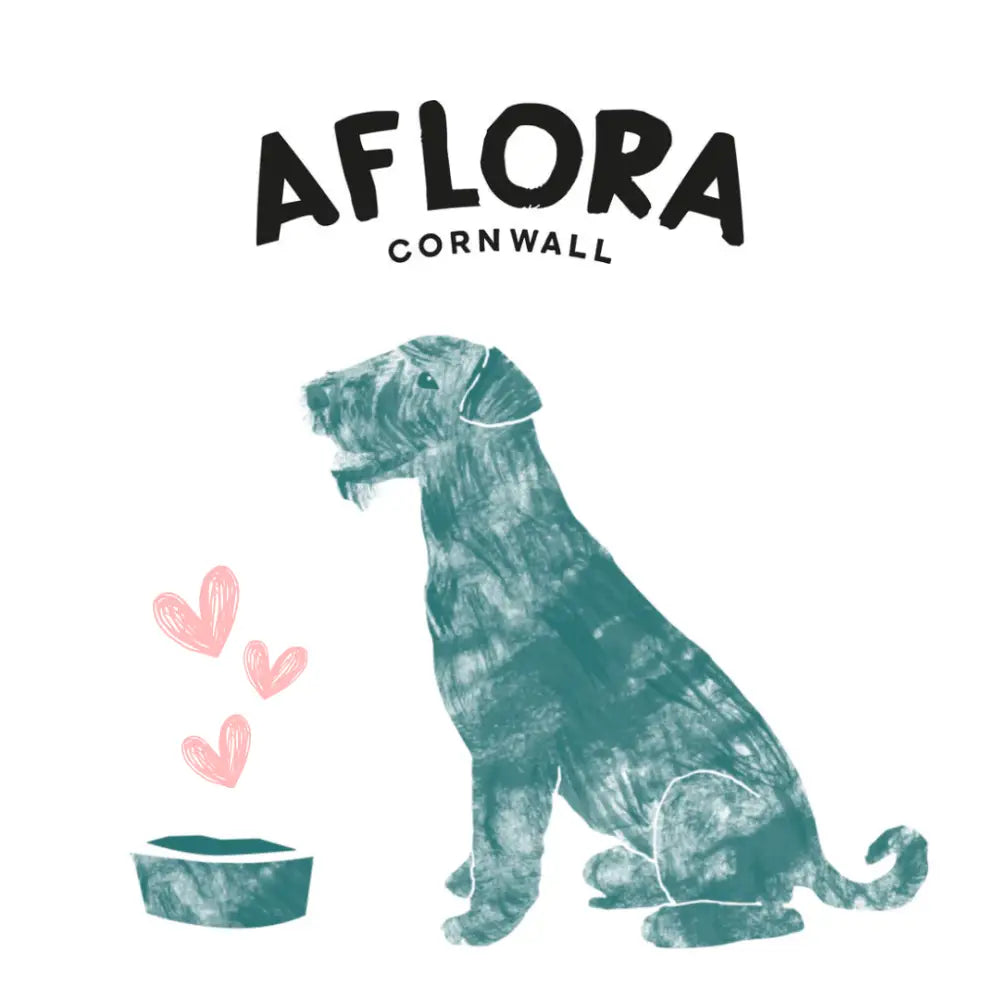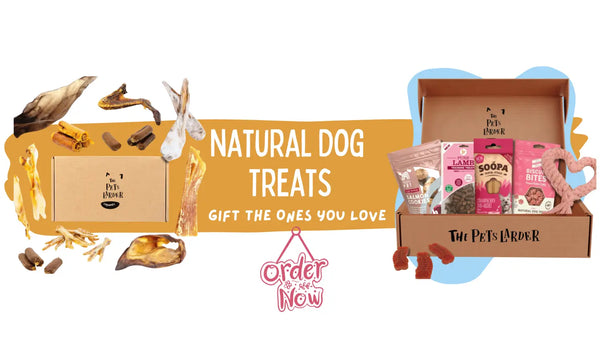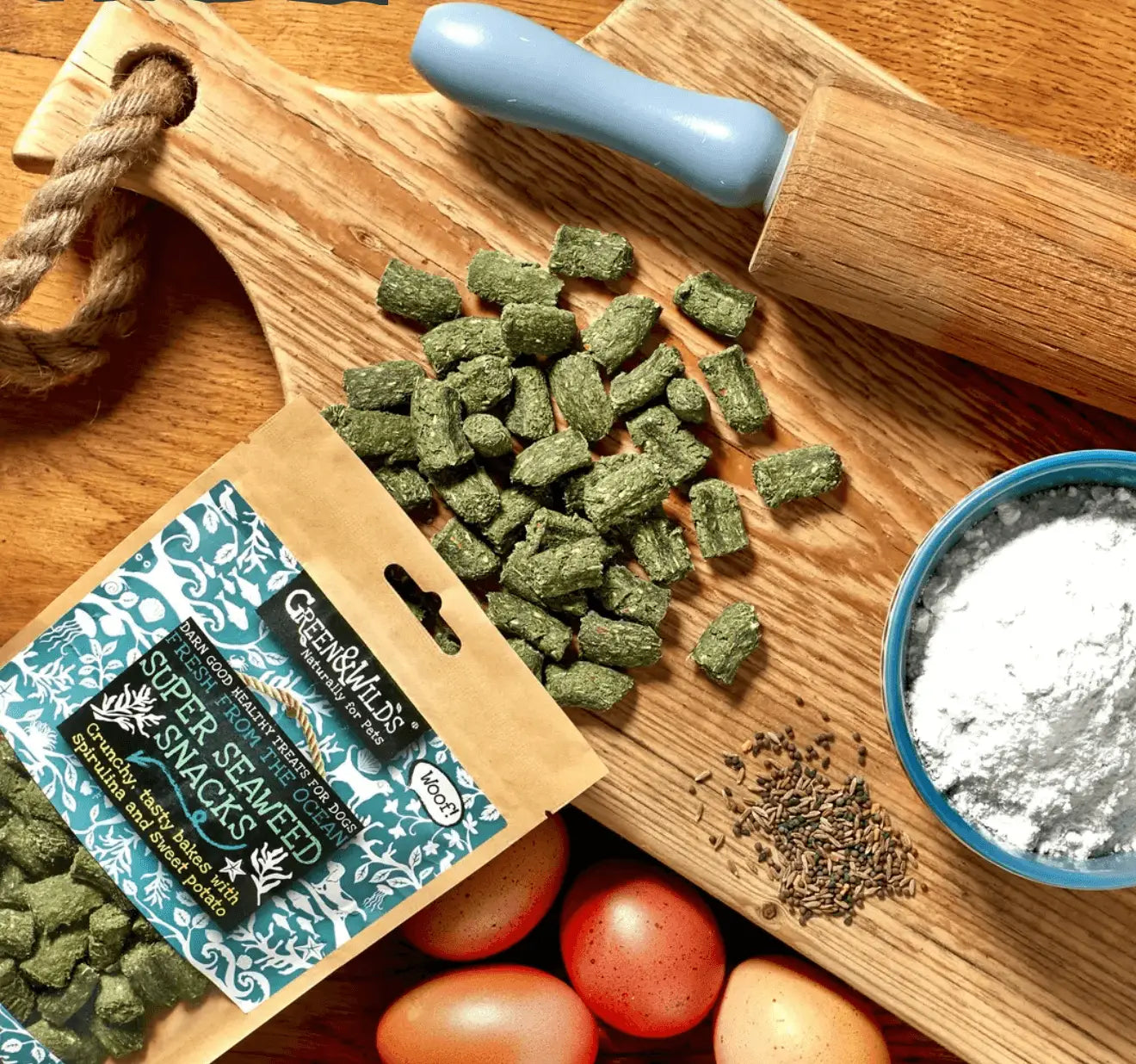As pet owners, we love treating our furry companions to the best food, toys, and care possible. But have you ever considered the environmental impact of the treats you give your pets? Sustainable pet care goes beyond eco-friendly toys and biodegradable waste bags—it extends to the everyday treats we reward our pets with. Fortunately, choosing eco-friendly pet treats can be a simple step in reducing your carbon pawprint while supporting your pet’s health and well-being.
In this blog, we’ll guide you through the key factors to consider when choosing sustainable treats for your pet, and how to make sure the treats you select are as kind to the planet as they are to your pet.
Why Choose Sustainable Pet Treats?
Sustainability is about minimising harm to the environment while promoting ethical and responsible practices. For pet treats, this means choosing products that use responsibly sourced ingredients, eco-friendly packaging, and support ethical business practices.
Opting for sustainable treats offers numerous benefits:
- Environmental Protection: Sustainable treats minimise deforestation, pollution, and overfishing. They often use ingredients that are renewable and responsibly sourced.
- Healthier for Your Pet: Many eco-friendly treats are made from natural, organic ingredients without artificial additives, which promotes better health for your pet.
- Supporting Ethical Companies: By purchasing sustainable products, you support brands that prioritise the environment, animal welfare, and fair labour practices.
What to Look for in Sustainable Pet Treats
1. Natural and Organic Ingredients
One of the first things to check when choosing sustainable pet treats is the ingredients. Opt for treats that are made from natural, organic ingredients. Organic treats are grown or raised without harmful chemicals, pesticides, or synthetic fertilisers, which reduces the environmental impact of farming.
Natural ingredients also tend to be healthier for your pet, reducing the risk of allergies or digestive issues associated with artificial additives. Look for treats that list wholesome ingredients like meat, fish, vegetables, and grains on the label, rather than a long list of chemical preservatives or artificial flavours.
2. Sustainably Sourced Ingredients
When selecting eco-friendly treats, check whether the ingredients are sustainably sourced. This includes meat, fish, and plant-based ingredients. Overfishing, deforestation, and industrial farming contribute to significant environmental damage, so it’s important to choose brands that prioritise sustainability.
For example, treats made with sustainably caught fish, like salmon or herring, support healthy marine ecosystems. Grass-fed or free-range meat treats also tend to have a lower environmental impact than those sourced from industrial livestock farms.
Tip: Look for treats that come with certifications like the Marine Stewardship Council (MSC) for sustainable seafood or organic farming certifications for meat and plants.
3. Minimal Processing
Highly processed treats often come with a high environmental footprint due to the energy and resources required in their production. Plus, heavily processed treats often lose many of their natural nutrients. Look for treats that are minimally processed, such as air-dried or freeze-dried options, which retain more of the natural goodness of the ingredients while reducing the need for energy-intensive manufacturing processes.
Raw treats, such as dehydrated chicken necks or dried fish skins, are excellent low-impact options that are packed with nutrition. These treats are not only better for your pet’s health but also kinder to the environment.
4. Eco-Friendly Packaging
One of the biggest environmental challenges in the pet industry is plastic waste. Many pet treats come in plastic packaging, which takes hundreds of years to break down in landfill and contributes to pollution in oceans and natural habitats.
When choosing sustainable treats, opt for brands that use eco-friendly, recyclable, or compostable packaging. Paper bags, cardboard boxes, or bioplastics made from renewable sources like cornstarch are much better alternatives to single-use plastic.
Some brands even offer bulk-buy options or reusable containers to further reduce packaging waste. By choosing treats with eco-friendly packaging, you’re not only providing something healthy for your pet but also helping to reduce plastic pollution.
Example: Look for packaging with clear labels like "compostable" or "made from recycled materials."
5. Ethical Sourcing and Animal Welfare
Sustainable pet treats should align with ethical principles, including animal welfare. Many eco-friendly brands prioritise sourcing ingredients from farms that treat animals humanely, such as free-range or pasture-raised livestock. Treats made from ethically sourced ingredients ensure that the animals used were treated with respect throughout their lives.
For plant-based treats, look for brands that support fair trade practices, which ensure that farmers receive fair wages and work in safe conditions. By choosing ethically sourced products, you are supporting companies that uphold higher standards for both the environment and human rights.
6. Carbon-Neutral or Zero-Waste Companies
Some companies take their commitment to sustainability even further by operating as carbon-neutral or zero-waste. Carbon-neutral companies offset their emissions by supporting renewable energy projects or reforestation initiatives, making their overall impact on the planet neutral. Zero-waste companies strive to reduce waste throughout their entire production process, ensuring that nothing goes to landfill.
Choosing treats from companies with these certifications can have a significant positive impact on the environment. Look for brands that clearly state their commitment to reducing their carbon footprint or achieving zero waste in their manufacturing.
Top Sustainable Pet Treat Brands to Consider
If you’re looking to switch to sustainable treats, here are a few brands that offer eco-friendly options:
- JR Pet Products: This brand offers natural treats with simple ingredients and sustainable sourcing. Their air-dried fish treats are a great low-impact option.
- Green & Wild's: Known for eco-friendly dog treats, this brand focuses on natural ingredients and compostable packaging.
- Canagan: With sustainably sourced ingredients and a focus on quality, Canagan’s treats are not only nutritious but environmentally responsible.
- Natures Menu: Their treats are made with high-quality, responsibly sourced meats, perfect for eco-conscious pet parents.
Final Thoughts: Sustainable Treats for a Greener Future
Choosing sustainable treats for your pet is a simple yet impactful way to embrace eco-friendly living. By selecting treats made from natural, organic, and responsibly sourced ingredients, you’re not only supporting your pet’s health but also contributing to the well-being of the planet. Look for brands that prioritise eco-friendly packaging, minimal processing, and ethical sourcing to ensure that every treat you give your pet is aligned with your green values.
Together, we can make small changes that create a big difference—for our pets, our planet, and future generations.















